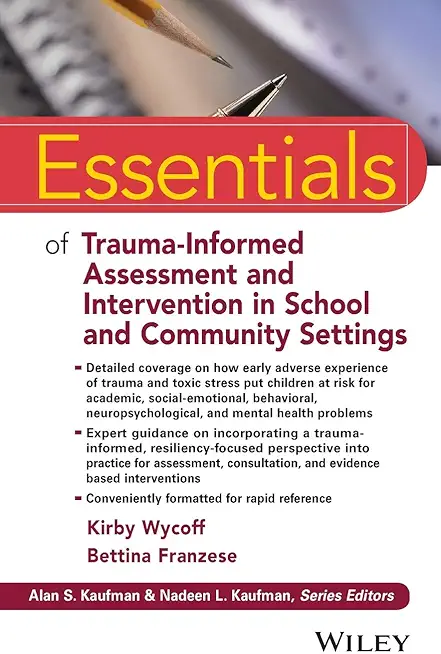
Wycoff, Kirby L.
Understanding how chronic stress affects child development with step-by-step guidelines for conducting trauma-informed assessments and interventions
Children exposed to early negative and adverse experiences may not think, feel, process emotions, behave, respond to, or relate to others the same way that typically developing children do. If psychologists do not appreciate and understand the effects of trauma in the lives of children, they may be working in ways that are not efficient or effective and may actually be providing a disservice to the children and families they serve.
This volume provides an overview of the deleterious effects of adverse childhood experiences (also referred to as complex trauma, toxic stress or developmental trauma) on children's functioning, adjustment, cognitive, social-emotional, behavioral, academic, and neuropsychological outcomes. Complex trauma can alter brain structure and function and throw children off a normal developmental trajectory resulting in a myriad of negative outcomes.
In addition, step-by-step guidelines are provided for conducting trauma-informed assessments, treatments, and interventions.
- Understand how early stressors can affect influence normal development and influence child psychopathology
- Learn how exposure to early life adversity affects the biological stress systems which can compromise normal brain development
- Become familiar with the functions and neuropsychological constructs associated with brain regions affected by chronic stress.
- Identify risk factors that can negatively influence children's behavioral, social, emotional, cognitive, and academic functioning
- Identify and use trauma-sensitive assessment instruments and protocols
- Gather background and family history from a trauma perspective
- Use evidence-based interventions to best meet each child's unique needs
Essentials of Trauma-Informed Assessment and Interventions in the Schools is essential reading for school, clinical, and related psychologists and their trainers.







